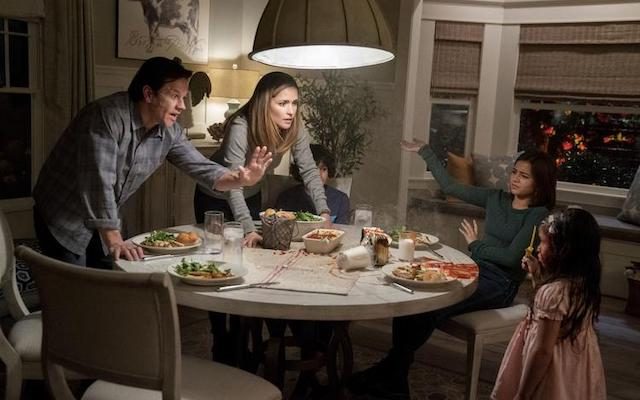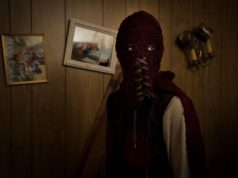
“Instant Family” may not be the most wonderful movie of the year, but it’s certainly the most surprisingly wonderful. Inspired by a true story, the premise threatens a sappy, manipulative Hallmark movie: White childless couple Pete (Mark Wahlberg) and Ellie (Rose Byrne) decide to take in a foster kid and end up with a trio of Latino siblings. Ho ho, what a handful that’ll be!
And it probably would have been a cheesy heartwarmer if the real events that inspired it hadn’t happened to Sean Anders, director and/or co-writer of films like “Sex Drive,” “Hot Tub Time Machine,” “Horrible Bosses 2,” and “Daddy’s Home.” Working with usual writing partner John Morris, Anders delivers a film that is duly sweet but also realistic, populated by characters who swear and have doubts, where the would-be foster dad can’t help making inappropriate comparisons to rescue dogs and fixer-upper houses. Pete and Ellie get the idea of fostering because there’s something missing from their lives, but they’re motivated to go through with it out of pride because their relatives don’t think they can. That’s not the reason you want to hear for someone becoming a foster parent, but I bet it’s a common one.
Pete and Ellie have something like a toddler in mind, but at the meet-and-greet for fosters and potential parents, they’re won over by 15-year-old Lizzy (Isabela Moner) — well, not won over so much as teased for being too scared to take on a teenager. When the family services people tell Pete and Ellie that Lizzy has two siblings and then show pictures of the adorable little cherubs, Pete says, “Why would you show us these??” and Ellie says, “You’re an a**hole right now.” They take in all three, of course — adolescent Lizzy, dopey younger Juan (Gustavo Quiroz), and precious li’l Lita (Julianna Gamiz) — and of course all three turn out to be challenging in some way.
Pete and Ellie are part of a group of foster parents guided by family services employees Karen and Sharon, played by Octavia Spencer and Tig Notaro, respectively. Spencer’s larger-than-life sass and Notaro’s well-calibrated deadpan make them an excellent comic duo, and they encourage the parents to vent their frustrations at the regular support meetings. The other families — including an infertile couple, a gay couple, a Christian couple who want to “share their blessings” — become friends through shared experiences, and they laugh at one another’s foibles (as when Pete and Ellie initially brag about how well things are going, unaware of the “honeymoon” period). “It’s important to have a sense of humor,” says Sharon, and she couldn’t be more right. One of the parents (Iliza Shlesinger), a single white lady who wants to adopt an athletic black teenager and recreate a “Blind Side” situation, roundly mocked by the others for this, grumbles, “You know, this is the exact opposite of a ‘support’ group.”
The kids, whose mother is a drug addict, have bounced between foster homes and have developed anxieties and fears that the film treats seriously, not (just) as punchlines. The difficult emotional nuances of fostering are considered: You come to love the kids, but that makes it hard to root for their mother to get her act together so she can have them back, and then you feel bad for feeling selfish.
Julie Hagerty and Margo Martindale are on hand as the adoring foster grandmothers, and Joan Cusack shows up at the end as a neighbor who gets caught up in the love-fest. Which is what the movie is, and why it works: It’s about flawed but decent adults defending and protecting children (when Lizzy gets dirty text messages from an older guy … buddy, WATCH OUT), all in a funny, relatable way, with everyone fully aware that the most important thing is love. The happy tears and good feelings it produces are well earned, not forced. The closing credits have pictures of real foster families, for crying out loud. This is basically propaganda to encourage people to become foster parents, and I can hardly think of a better use of propaganda.
B+ (1 hr., 58 min.; )





